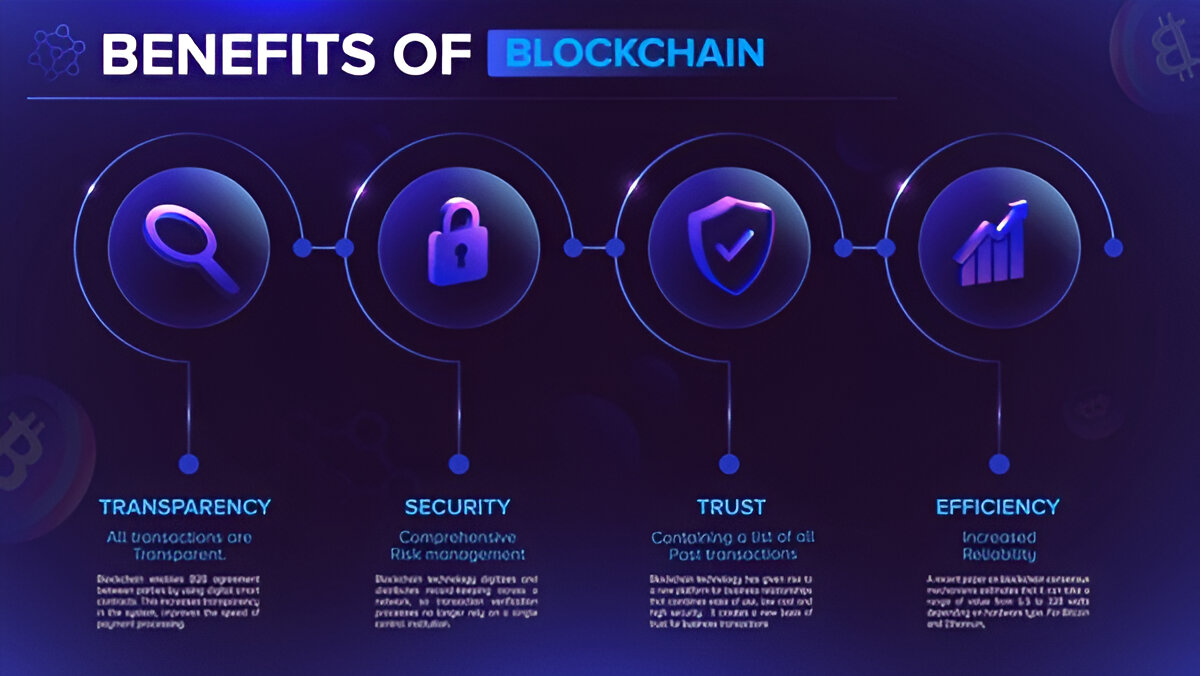Top 10 Real Estate Trends in 2025: Shaping the Future of Homes, Technology, and Investment
Real estate is in the middle of a tech-driven makeover, and 2025 is the tipping point for changes that will redefine how we live, buy, and invest in property. Whether you’re buying your first home, piling up rental units, or just keeping an eye on the market, understanding these trends will put you ahead of the curve.
This post lays out the 10 most important trends to track in 2025, from the rise of smart living spaces to green building practices and the growing role of blockchain. Together, these trends will steer the real estate market for years to come.
- Smart Homes: The New Normal by 2025
By 2025, smart homes will be the default choice for most buyers. Picture spaces fitted with AI-driven thermostats, app-controlled lights, smart door locks, and fridges that track groceries. These gadgets make daily life easier, boost safety, and cut energy use.
Why it matters: Today’s buyers want homes that come with built-in smart tech, especially systems that lower utility bills. Features like automated shades and real-time security alerts not only save energy but also lift the home’s overall market value.
Blockchain in Real Estate: The Future of Property Transactions
Blockchain technology is changing how we buy, sell, and manage real estate. Experts say that by 2025, most property transactions will use blockchain for stronger security, full transparency, and faster processing.
So, what’s changing? Blockchain allows property titles and payments to move directly from buyer to seller. There’s no need for banks, brokers, or attorneys, which cuts costs, reduces the chance of fraud, and speeds everything up.
Take Dubai for instance: the city has already integrated blockchain to speed up deeds and permit approvals. Other cities and countries are already preparing to roll out similar systems.
Why Net-Zero Homes are the Future
As the demand for eco-friendly living grows, net-zero homes are winning buyers hearts. These homes produce as much energy as they use, thanks to rooftop solar, smart insulation, and eco-friendly building materials.
Why should you care? Climate change is no longer a distant worry. Buyers and investors now choose homes that leave a smaller footprint. Developers are listening and adding greener features from the start.
Cities like Los Angeles and San Francisco are raising the bar: by 2025, new homes will need to be ready to run on zero net energy. If you’re in the market or the building business, net-zero is no longer an option; it’s the new standard.
4. Virtual Reality (VR) and Augmented Reality (AR) Changing How We Buy Homes
By 2025, virtual tours and augmented reality will be everyday tools for anyone buying a home. Instead of driving from one property to another, buyers will walk through houses from their couch, even changing wall colors and room layouts in 3D before deciding to place an offer.
Why it matters: With remote work here to stay, buyers want to shop for homes safely and quickly. VR and AR let anyone tour a property from anywhere, removing the need for multiple in-person visits. This is great for homebuyers and for investors who want to make smarter decisions with less travel.
Example: Matterport and Redfin already provide virtual tours of homes. AR apps show buyers where their own couch will fit or let them see what new cabinets would look like in the kitchen.
5. 3D-Printed Homes: The Future of Affordable Housing
By 2025, 3D printers will be a common tool for building affordable houses. These homes go up in days instead of months and cost much less than traditional builds, making them a real solution for tight budgets.
Why it’s important: Fast, affordable homes mean we can build more of them where they’re needed most. Plus, 3D printing lets us create unique shapes and layouts without extra cost, so every home can fit its neighborhood and its owner.
Example: ICON already has neighborhoods of 3D-printed homes in Texas and is ramping up production to go global.
6. AI and Predictive Analytics: Changing How We Invest in Real Estate
In 2025, AI will be the toolkit every savvy real estate investor can’t be without. It will crunch millions of data points to spot the next hot neighborhood, project where values will climb, and even tell you the sweet spot to seal the deal.
Why you should care: With AI, decisions shift from guesswork to evidence. No more waiting for last quarter’s report or gut feelings—just real-time, clear answers.
Examples to watch: Companies like Zillow and Redfin are already using AI to show you realistic property values and smart investment moves, guiding buyers and sellers alike.
7. The Boom of Hybrid Living Spaces
With remote work here to stay, buyers want homes that pull double and triple duty. By 2025, you won’t just choose a living room—you’ll choose a space that can be a gym, a Zoom room, or a movie theater, all in a few minutes.
Why this matters: Flexible, adaptable layouts are no longer nice-to-have; they’re must-have. People want a spare room that can be a quiet office one day and a playroom the next.
What builders are doing: Forward-thinking developers are putting modular walls and convertible rooms into the blueprints so that every square foot of the home pulls its weight for work, fitness, and fun.
8. Smart Cities: Where Tech Meets Tomorrow’s Urban Living
Smart cities are becoming the new normal, with fresh projects worldwide zeroing in on green living, seamless connections, and smart use of resources. We’ll start seeing whole cities humming on IoT (Internet of Things) by 2025, linking everything from stoplights to smart meters into one streamlined system.
Why this matters: Property investors are already eyeing these high-tech districts. Homes and offices in smart cities tend to hold their value, deliver a better living experience, and come with a stronger growth story.
Take NEOM in Saudi Arabia. This is a $500 billion vision of a smart city that will run on AI, driverless transport, and designs that sit lightly on the land.
9. Virtual Real Estate: The Metaverse Goes Mainstream
The metaverse keeps growing, and by 2025, virtual land could top a billion-dollar market. Platforms like Decentraland and The Sandbox already let users create, buy, and lease 3D spaces.
Why this is key: Virtual real estate lets investors add a new layer to their portfolios. You can build a digital venue for a brand, throw concerts, or create a hangout that pays rent.
Big names are already in: Sotheby’s has a virtual gallery, and Nike is selling digital gear for avatars, proving this digital land has real value.
10. Fractional Ownership and Real Estate Crowdfunding
Crowdfunding platforms let everyday people invest in expensive properties by buying small pieces, or fractions, of ownership. By 2025, this approach will widen the doorway to property investing, opening it to anyone with a modest amount to spare.
Why It Matters: Crowdfunding permits small-scale investors to enter the real estate market without needing a small fortune. By sharing the cost, it lowers individual risk and invites a larger crowd of would-be investors.
Example: Sites like Fundrise and RealtyShares let users combine money to buy shares in both commercial and residential properties around the world.
Conclusion:
Looking to 2025, the real estate world feels bright. Smart gadgets, blockchain records, 3D-printed homes, and greener designs are changing how we live, manage, and invest in property.
Keeping an eye on these trends will boost your choices, whether you’re planning to buy a first home, adding to a property portfolio, or building a career in the industry.
Meet Aurora Le Claire: Your Trusted Real Estate Advisor
If you’re considering making a move in Dubai’s real estate market, Aurora Le Claire is the agent to have by your side. With years of experience and a passion for matching clients with the perfect properties, Aurora can guide you through every step of the process.
Hot Neighborhoods Aurora Covers
- Jumeirah Lakes Towers (JLT): Stunning high-rises with lake views.
- Palm Jumeirah: Iconic island living with unmatched luxury.
- Dubai Marina: A waterfront haven with yachts below every balcony.
- Jumeirah Beach Residence (JBR): Beachfront luxury, where life is always at the shore.
Aurora will provide you with data-driven advice, offering insights into which areas will give you the best returns, whether you’re buying to live or for rental income.
Contact Aurora Le Claire today for a no-cost consultation and find out how you can make Dubai’s real estate market work for you.
📞 Phone: +971 50 254 0128
✉️ Email: w.rejoice@kingdomproperties.ae
Why Invest in Dubai Now?
In 2025, Dubai is not just growing—it’s evolving into a global real estate hub with high rental yields, strong infrastructure, and attractive tax laws. Whether you’re seeking high returns from bulk rentals, eyeing luxury living in iconic locations, or securing a Golden Visa, Dubai’s property market offers something for everyone. With seasoned experts like Aurora Le Claire to guide you, now is the perfect time to make your move.
Invest in Dubai now and be part of its thriving future. 🌟


